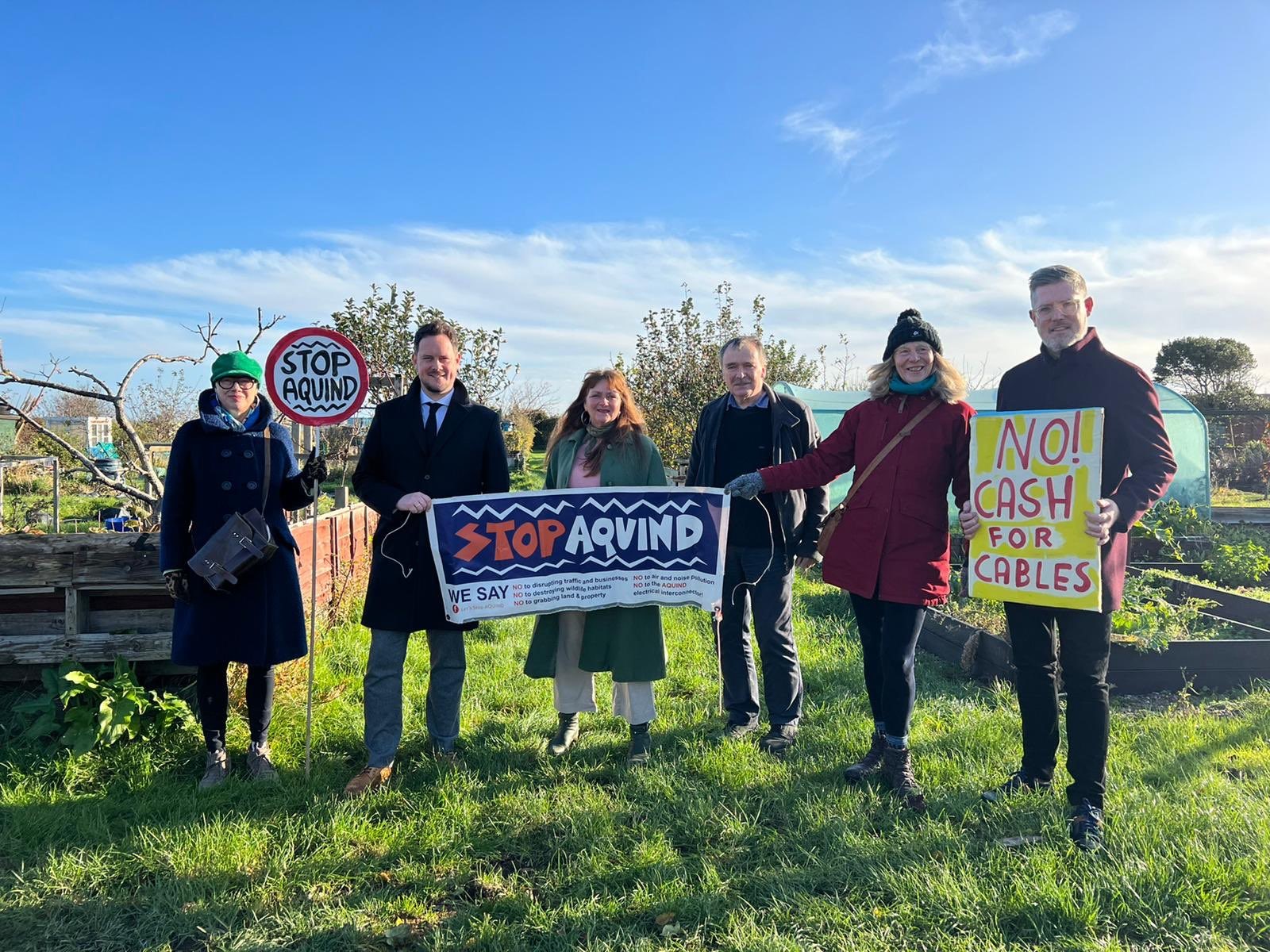
Beyond football, there is little that unites Portsmouth people more than our opposition to the Aquind interconnector project.
It doesn’t matter what part of the city you’re from, the political party you support or how you like your tea made – local residents want the project scrapped.
First announced in 2016, the proposed electricity link would lay cables through Portsmouth from Normandy.
Since my election, working alongside the Let’s Stop Aquind grassroots group, I have made clear my concerns about the project on environmental grounds. Aquind’s plan would be devastating for Portsmouth’s delicate marine wildlife, as well as birds and insects. It would cause long-term disruption to Portsmouth’s valued open spaces with the unmitigated loss of recreational space.
But perhaps more significantly from a national standpoint, I have also consistently raised concerns about the project company’s concerningly opaque structure and finances, it’s ties with the Conservative Party and how the interconnector could post a threat to our nation’s security.
Aquind is part-owned by Russian-born Viktor Fedotov and Ukrainian-born Alexander Temerko. Media reports in 2021 from the BBC and Guardian reported that documents in the Pandora papers suggest that Fedotov benefited from a $4bn alleged fraud in Russia. This seems to have been achieved through a complex scheme that funnelled government cash through layers of shell companies that were ultimately owned by Mr Fedotov.
Similar concerns have been raised about Aquind’s finances, with little information available about where its money is coming from, who is providing it, or whether similar complex financial structures are being used to hide this.
Mr Fedotov had been able to remain completely anonymous as the company’s owner using a rare exemption in corporate transparency rules, until his identity was revealed following an investigation by The Times in August 2020. Why this anonymity was necessary is not clear.
Aquind’s public face, Alexander Temerko, has also conducted a coordinated and concerted effort to influence British political figures.
Since the project started, Temerko has donated over £700,000 to the Conservative Party. In addition to this, research done by the BBC has revealed that Mr Fedotov’s businesses have donated a further £700,000 to 34 MPs and their local parties.
In a letter to Temerko in October 2019, Kwasi Kwarteng, then the Minister of State for BEIS, said: “We have written to the commission to reiterate our support for a number of projects including, of course, the Aquind project.”
In January 2022, following heroic campaigning by Portsmouth people, the Business Secretary finally saw sense and stopped the disastrous Aquind project.
However, last month the Government’s decision was overturned in the High Court. The case will now go back to Grant Shapps, for a redetermination in part based on the court’s judgment, which is why this week I have objected again to the Planning Inspectorate on behalf of Portsmouth people.
The Government now has two months in which to ask questions about the proposal and then a further three months to hand down a new decision.
It is imperative that Ministers stand by the Government’s decision in 2022 to scrap the project.
At the time, the Mr Kwarteng said he was unable to conclude that the benefits of the proposed development would outweigh its adverse impacts on the local area.
These facts remain unchanged.
And crucially, at a time of widespread calls to clean up alleged dirty-money in Britain linked to Putin’s Russia, this application is not worth the paper it is written on.
Portsmouth people remain united it our opposition against Aquind. The Government was right to finally arrive at the correct decision to not approve it. For the sake of our environment, democracy and national security, it is of vital importance that it stands by that decision.
Stephen Morgan MP

